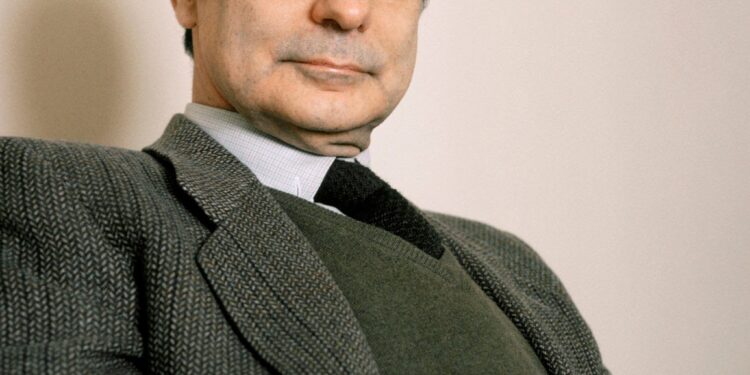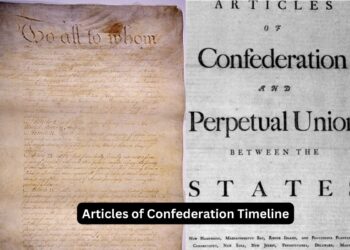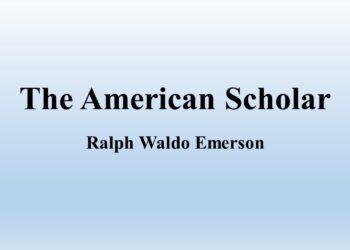Exactitude Essay Summary By Italo Calvino
Italo Calvino wrote the essay “Exactitude” in 1988. Calvino examines the idea of exactitude and how it relates to writing and literature in this article. He thinks about the difficulties it poses for authors and the idea of precision and correctness in artistic expression.
Exactitude Essay Summary By Italo Calvino-Calvino acknowledges right away that striving for accuracy in writing is a goal that is frequently challenging to fulfil. He emphasises how words can only approximate the concepts and sensations they are trying to convey since language is inherently imperfect. Calvino contends that writers should aim for accuracy in their writing even if they can never fully achieve it.
Exactitude Essay Summary By Italo Calvino-According to Calvino, writing with exactitude entails paying close attention to every detail and making a commitment to precisely portraying reality. He claims that this dedication to accuracy is essential for expressing the subtleties and intricacies of the human experience.
Also Read-
- Late Victorians Essay Summary By Richard Rodriguez
- How to Tame a Wild Tongue Essay Summary By Gloria Anzalda
- Living Like Weasels Essay Summary By Annie Dillard
- “Camera Lucida: Reflections on Photography” Essay By Roland Barthes
Calvino contends that authors can better connect art and life by being accurate and so bringing readers’ perceptions of their themes closer to the truth.
Exactitude Essay Summary By Italo Calvino-Calvino does, however, recognise the limitations of precision. He cautions that placing too much emphasis on accuracy can result in writing that is lifeless and sterile and lacks imagination.
He warns against losing the imaginative and creative elements of writing in the name of accuracy, highlighting the significance of striking a balance between accuracy and artistic expression.
Exactitude Essay Summary By Italo Calvino-Calvino uses examples from a variety of literary works to support his arguments throughout the article. He talks about writers who have managed to write with a great degree of precision as well as those who have had difficulty finding the correct balance.
Calvino provides insights into the difficulties and opportunities of exactitude in literature by analysing these situations.
About Italo Calvino
Exactitude Essay Summary By Italo Calvino-Italo Calvino (1923-1985) was an Italian writer and journalist, renowned for his imaginative and experimental approach to literature.
He was born in Santiago de las Vegas, Cuba, but grew up in Italy. Calvino’s works span various genres, including novels, short stories, essays, and fables, and he is considered one of the most influential Italian writers of the 20th century.
Exactitude Essay Summary By Italo Calvino-Calvino’s writing style is characterized by its playfulness, intellectual depth, and exploration of complex themes. He often combined elements of fantasy, science fiction, and allegory to create unique and thought-provoking narratives.
His works frequently blur the boundaries between reality and imagination, offering readers rich and imaginative storytelling experiences.
Exactitude Essay Summary By Italo Calvino-Some of Calvino’s notable works include “If on a winter’s night a traveler,” “Invisible Cities,” “The Baron in the Trees,” and “Cosmicomics.”
In these works, he delves into diverse subjects such as philosophy, literature, science, and the nature of storytelling itself. Calvino’s writing reflects his fascination with the power of language, the intricacies of human experience, and the relationship between fiction and reality.
Exactitude Essay Summary By Italo Calvino-Calvino received numerous accolades for his contributions to literature, including the prestigious French literary prize, the Prix Médicis étranger.
His works have been translated into multiple languages and continue to be celebrated for their originality and imaginative prowess. Italo Calvino’s unique literary voice and his ability to challenge conventional storytelling conventions have left a lasting impact on readers and writers worldwide.
Conclusion
Exactitude Essay Summary By Italo Calvino-Italo Calvino’s essay “Exactitude” provides a thought-provoking examination of the pursuit of precision and accuracy in literature. Calvino argues that while exactitude may be elusive, writers should strive for it in their work, as it enables a deeper connection between art and life.
Exactitude Essay Summary By Italo Calvino-He emphasizes the importance of meticulous attention to detail and a commitment to representing reality as accurately as possible. However, Calvino also cautions against sacrificing creativity and imagination in the pursuit of exactitude, highlighting the need for a balance between precision and artistic expression.
Exactitude Essay Summary By Italo Calvino-Through his analysis of literary examples, Calvino offers insights into the challenges and possibilities of exactitude in writing. Ultimately, “Exactitude” encourages writers to aspire to the highest level of precision while remaining mindful of the vital role that imagination plays in the artistic process.
FAQ.
Q: What is the main idea of Italo Calvino’s essay “Exactitude”?
A: The main idea of Calvino’s essay “Exactitude” is the exploration of the concept of precision and accuracy in literature. Calvino argues that while achieving exactitude in writing is challenging, it is a goal worth pursuing. He emphasizes the importance of attention to detail and representing reality accurately, while also cautioning against sacrificing creativity and imagination in the process.
Q: What does Calvino mean by “exactitude” in literature?
A: By “exactitude” in literature, Calvino refers to the pursuit of precision and accuracy in artistic expression. It involves a meticulous attention to detail and a commitment to representing reality as accurately as possible. Calvino believes that exactitude allows writers to capture the complexities and nuances of the human experience, bringing readers closer to the truth of their subjects.
Q: Does Calvino believe that exactitude is attainable in literature?
A: Calvino acknowledges that attaining complete exactitude in literature is difficult, if not impossible. He recognizes that language itself is inherently imprecise, and words can only approximate the ideas and sensations they aim to convey. However, despite the challenges, Calvino believes that writers should strive for exactitude, as it leads to a deeper connection between art and life.
Q: What are the dangers of pursuing exactitude in literature, according to Calvino?
A: Calvino warns against the dangers of sacrificing creativity and imagination in the pursuit of exactitude. He cautions that an excessive focus on accuracy can lead to a cold and sterile form of writing that lacks vitality. Calvino emphasizes the need for a balance between precision and artistic expression, suggesting that too much emphasis on exactitude may hinder the imaginative aspects of literature.
Q: How does Calvino support his arguments in “Exactitude”?
A: Calvino supports his arguments in “Exactitude” by drawing on examples from various literary works. He discusses authors who have successfully achieved a high level of exactitude in their writing, as well as those who have struggled to strike the right balance. These examples serve to illustrate the challenges and possibilities of exactitude in literature and provide concrete evidence for his assertions.
















